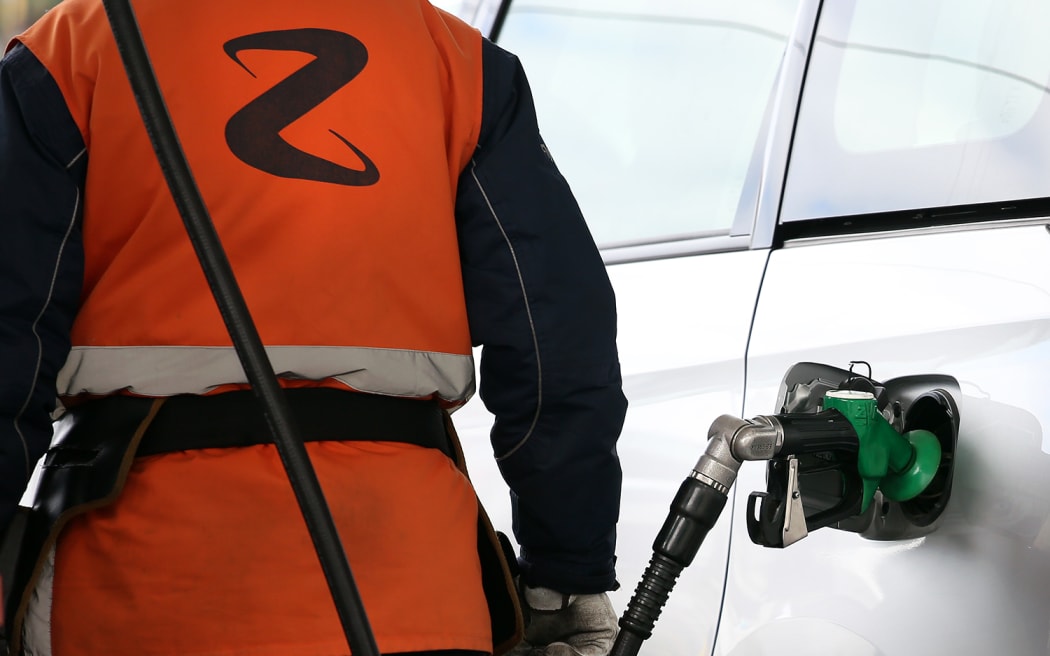Z Energy says it has fog cannons in all its service stations, but that was only one part of a $24 million security package that it has put in place to keep its staff and customers safe.
Yesterday the government announced a $4000 subsidy for dairies and small businesses to help them install fog cannons and deter criminals.
That was several days after the fatal stabbing of Janak Patel at Rose Cottage Superette in the Auckland suburb of Sandringham.
Z Energy chief executive Mike Bennetts said a work programme had been underway since 2018 and it now had fog cannons at all its 200 or so service stations.
"We've actually spent $24 million installing bollards, reinforcing doors and windows, putting in fog cannons to back our dispensers, establishing safe rooms and giving our people safety pendants and all the alarms that they need to keep themselves safe."
Of the $24m that Z spent on security measures, only $1.5m of that was on fog cannons, he said.
Bennetts said although fog cannons were great, they were not sufficient for a business such as theirs and it was just one of the layers of defence that were put in to keep staff safe.
The statistics showed the difference the security measures made, with 23 robberies recorded at Z service stations in 2018 compared to two this year, he said.
Z Energy aimed to make its service stations "the least attractive place to break into" both during normal operating hours and after-hours, he said.
The fog cannons were not just to deter robbers, but if they a robber was inside the store and it went off it was designed to give staff time to get to a safe room, he said.
The safe room was a place that staff could quickly get to from behind the till and they could lock themselves in - it was extremely difficult for an offender to break in to, he said.
"We've established safe rooms in all of our service stations because it's really important to us we create distance between the offender and any of our people."

All Z service station staff are trained in how to deal with offenders, Bennett said. Photo: RNZ
Any time Z staff saw any type of hostility or had concerns they could sound the alarm, activate the fog cannon and get to the safe room, Bennetts said.
Other measures included changing service station's operating hours in some areas and undertaking an annual security assessment which looked at what was happening in society in general and how that could affect that particular site, he said.
Z staff undergo training in how to deal with offenders, he said.
During a robbery staff should try to activate all the security measures, but if that was not possible because the offender was "right in their face at that moment" they should do exactly what the offender told them, he said.
"We train our people up, we run virtual reality type programmes so they actually have the real experience of being face-to-face with an offender.
"We certainly tell them not to engage with the offender in any way during the robbery or afterwards ... We train people to minimise the interaction and to have no engagement after the incident at all with the offenders - sound the alarm, call the police."
Bennetts said they had to deal with society as it is and the main goal was to keep staff and customers safe.
Some smaller Auckland businesses told Checkpoint that fog cannons were not necessarily the best option for them.
The owner of Legit IT repairs and the Eat Love Food truck Suresh Mogli said businesses were worried about a lack of security, particularly after dark, and fog cannons were not appropriate for either of his properties.
He would like to see the council install more CCTV to catch offenders and a panic button that alerted nearby businesses when a robbery was underway.
At Garnet Dairy in Westmere, Bhavika Patel enquired about a fog cannon at the beginning of this year, with assistance from the existing police crime prevention fund.
But she did not proceed, after learning It would cost her $250 upfront, and $350 a year for maintenance and to re-fill the fog fluid.
Patel now plans on applying for a fully subsidised fog cannon, but said living on the premises with her husband and small baby was frightening.

